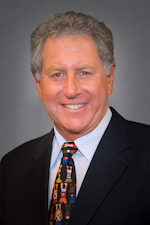When I started in pediatric dentistry in the 1970s, I quickly learned that children and adults with intellectual disabilities (ID) were not being seen by dental professionals. These patients faced huge obstacles not only in accessing oral health care but also in accessing quality health care. It became my lifelong mission to treat and advocate for children and adults with physical and intellectual disabilities.
In the 1970s, dental schools did not have a curriculum to teach students how to treat patients with ID. Furthermore, once dental students graduated, many turned away these patients because of the challenges of reimbursement, and their lack of experience on how to treat them. Many rotations put me directly in contact with children and adults with ID, and this emboldened me to become an advocate for this community.
I joined the faculty at the Boston University School of Dental Medicine in 1976 to teach residents how to treat patients with ID. In the early 1990s, I met Eunice Kennedy Shriver, the founder of Special Olympics and the sister of US President John F. Kennedy. Mrs. Shriver asked me to treat her sister Rosemary. After Rosemary’s successful oral rehabilitation, Mrs. Shriver called on me to focus on improving access to quality health care for all Special Olympics athletes. That was the start of the health work for Special Olympics.
Today, Special Olympics serves more than 6 million athletes across 195 countries. Consider this: On a team of 10 Special Olympics athletes, eight athletes are obese, three have untreated tooth decay, and one will need an urgent referral to a dentist (figure 1). For many Special Olympics athletes, receiving a dental screening at a Special Olympics event may be the first and only time they see a dentist, and by then, their oral health is often dire. Many patients with ID may not have the physical dexterity or intellectual capacity to take care of their own oral health needs and may be unable to communicate about their pain.
Through our critical health work, athletes receive free health screenings in the Special Olympics Healthy Athletes program, including dental screenings, eye exams, hearing tests, general physicals, and health promotion. I started Special Smiles, which is one of the eight different health disciplines offered through Healthy Athletes. In Special Smiles, athletes receive dental screenings from volunteer dental professionals. These volunteers are trained in caring for people with ID, and they get to interact with the athletes in a way they may never have otherwise. Today, Special Smiles reaches 200 Special Olympics local programs annually across 100 countries.
In 2018, at a Special Smiles screening in Seattle, Washington, softball player Tyler Schuster learned of a fractured tooth that would become infected if left untreated. He received care through a Special Olympics partnership with the Pacific Dental Services Foundation. Tyler was seen by Dr. Kimberly Bolak, who was trained on how to treat people with ID. In addition to restoring Tyler’s fractured tooth, Dr. Bolak provided additional necessary treatment including a root canal, crown, and several other restorations. Dr. Bolak continues to see patients with ID regularly.
I’m immensely proud of the work we have done in dental education and providing access to inclusive health care for people with ID. In the early 2000s, I testified before Congress to fight for dental schools to have mandatory curriculum for treating patients with ID. Today, all American dental and hygiene schools have a credo stating that all dental professionals must be competent in treating patients with disabilities, and dentists are required to have hands-on training to achieve a level of competence.
We are creating a world where everyone can get access to inclusive health care. I’m so proud to be a part of this mission and will continue to dedicate my life to it while encouraging others to do the same.








